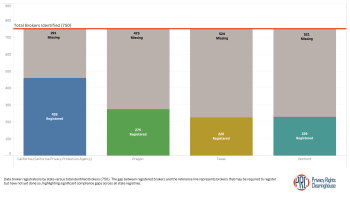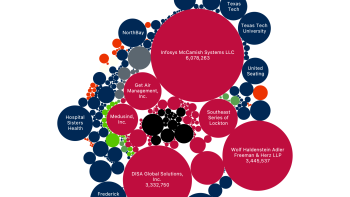
Reports
In 2025, the Data Breach Chronology captured 8,019 data breach notification filings from state and federal agencies that publish breach reports. These represented 4,080 unique breach events impacting at least 375 million individuals. This report examines what those 4,080 breaches tell us about the state of data security, and where the gaps in breach reporting leave consumers in the dark.

Reports
This survey analyzes and compares data breach notification laws across all 50 U.S. states and the District of Columbia. Using a standardized framework of 50 questions, we examined each jurisdiction's requirements for breach notification timing, covered data types, notification recipients, enforcement mechanisms, and consumer remedies.
The survey reflects statutes enacted as of January 1, 2026.
The survey reflects statutes enacted as of January 1, 2026.

Advocacy
Governor Newsom signs SB 361, AB 566, AB 656, and SB 446, advancing browser controls, data broker transparency, social media account deletion, and breach notification

Reports
Hundreds of data brokers have not registered with state consumer protection agencies. These findings come as more states are passing data broker transparency laws that require brokers to provide information about their business and, in some cases, give consumers an easy way to opt out.
Advocacy
We are joining 40+ consumer, civil rights, housing, and privacy organizations in urging the Consumer Financial Protection Bureau to maintain and continue its Consumer Complaint Intake System in the face of pressures to eliminate this vital consumer protection tool.

Reports
Our May 2025 update—the fifth this year—brings our complete data through May along with this focused analysis of Q1 breach statistics. The first quarter saw 876 new breach notifications representing 658 distinct security incidents that impacted over 32 million people.

Advocacy
We're proud to stand with Consumer Reports in supporting Senator Becker's SB 361 to improve the registration and transparency requirements of the California Delete Act.
Q&A
If you're a survivor of domestic violence, both federal and state laws offer important privacy protections to help keep you safe in your housing.